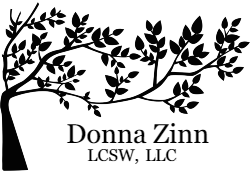Anxiety
“Almost everything will work again if you unplug it for a few minutes, including you.”
—Anne Lamott
Occasional anxiety is quite normal for one in five people at some time in their life. People with anxiety may have intense, excessive, and persistent worry and fear about everyday situations. Often, anxiety disorders involve repeated episodes of sudden intense feelings and fear that reach a peak within minutes (panic attacks).
Even though feeling afraid is very much a part of the human experience, it generally occurs in response to realistically anticipated danger. The experience of anxiety is similar to the experience of fear – with the difference being that anxiety occurs in the absence of real danger. One may think they are in danger, but the reality is that they are not.
Unlike medication, therapy treats more than just the symptoms of the problem. Therapy can help you uncover the underlying causes of your worries and fears; learn how to relax; look at situations in new, less frightening ways; and develop better coping and problem-solving skills. Therapy gives you the tools to overcome anxiety and teaches you how to use them.
Cognitive behavioral therapy (CBT) is the most widely-used therapy for anxiety disorders. CBT addresses negative thinking patterns and distortions in the way we look at the world, others, and ourselves. As the name suggests, this involves two main components:
- Cognitive therapy explores how negative thoughts, contribute to anxiety.
- Behavior therapy explores how you behave and react in situations that trigger anxiety.
For people with anxiety disorders, negative ways of thinking fuel the negative emotions of anxiety and fear. The goal of cognitive behavioral therapy (CBT) for anxiety is to identify and correct these negative thoughts and beliefs. The idea is that if you change the way you think, you can change the way you feel.
Follow the link below for a self- rating anxiety questionnaire.
https://psychology-tools.com/test/zung-anxiety-scale
Other resources:
National Alliance on Mental Illness (NAMI): 1-800-950-NAMI (1-800-950-6264)
Anxiety and Depression Association of America (ADAA): 1-240-485-1001
National Institute of Mental Health (NIMH): 1-866-615-6464


